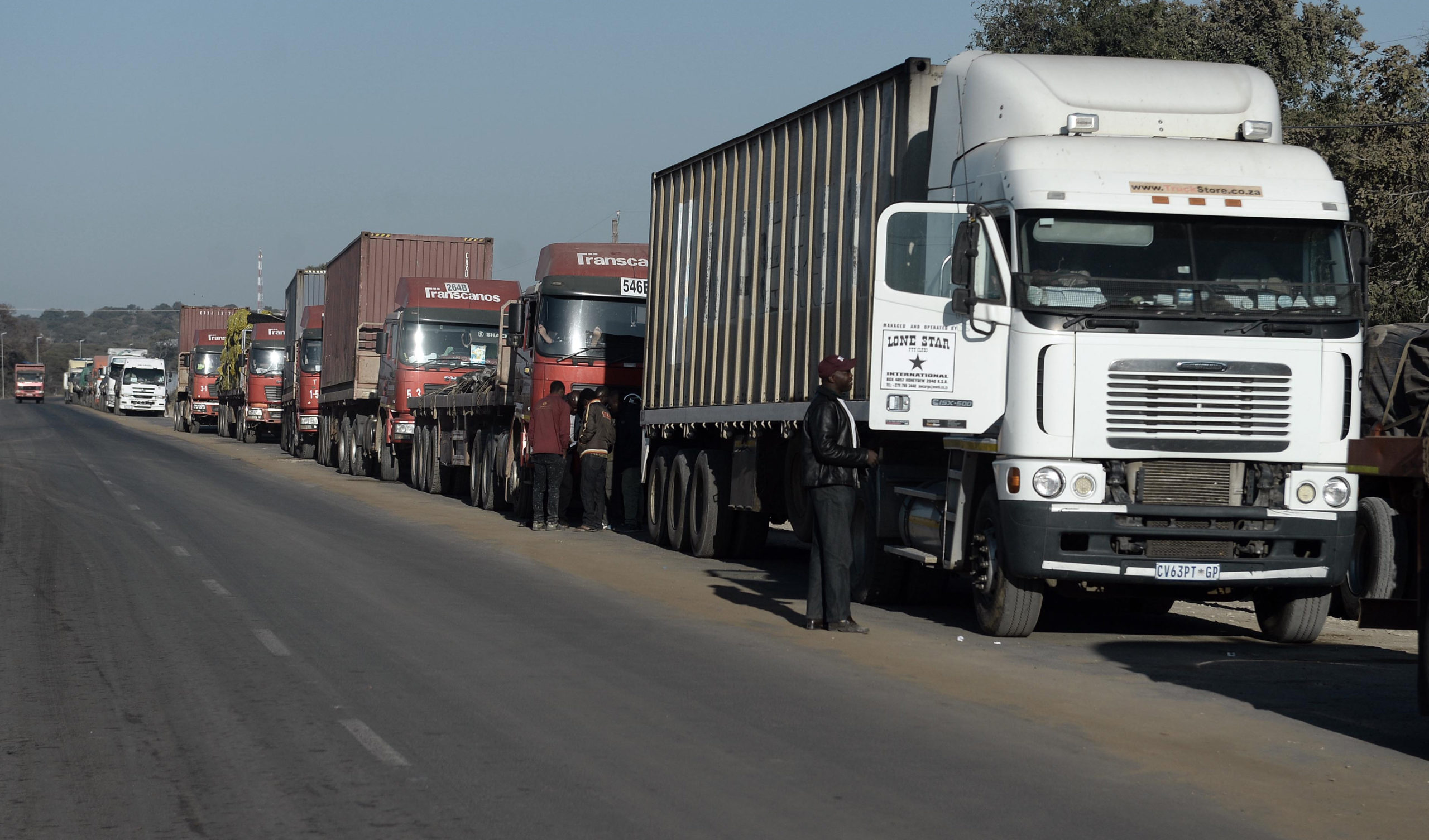They are rather heartlessly stigmatised as purveyors of COVID-19, but the reason truck drivers were exempted from extreme social distancing lies in Botswana’s monthly import bill of P6 billion. TLOTLO KEBINAKGABO reports
Botswana is a landlocked country with no direct access to the sea. On the other hand, the country is also a net-importer, which means that it relies on neighbouring countries’ ports to receive its imported goods. This is a country that is far from being self-sufficient and depends on other countries for just about everything – from food and sanitary pads for people to lubricants and heavy plant for its mines.
These goods are transported into the country from global sources, mostly South Africa as both source and transit route. From Namibia too, though the country to the west of Botswana is mainly an overland conduit from its seaports on the Atlantic coast, mainly Walvis Bay where Botswana owns rights. But Botswana, which sits on southern Africa’s highest plateau, serves as a critical nexus of routes to countries further afield, mainly to the north, that also import goods from the continent’s most advanced warehouse, South Africa. Botswana’s roads – and to a degree its only railway line that defines the country’s eastern corridor – are thus the beaten path for long haulage trucks to and from Zimbabwe, Malawi, Zambia, Angola and the DRC.
When Botswana was placed on lockdown on April 2 this year, the country’s economy,like much of everywhere else around the world, slowed to a near standstill. Except for its richly endowed mines, only transport and logistics kept the fire burning, bringing critical supplies to a nation whose people depend heavily on South Africa for basic alimentation and medication. But it was always known that the transportation of the essential goods is not without risk, and indeed truck drivers were soon testing positive for COVID-19, adding to the country’s confirmed cases. Sadly, stigmatisation of truck drivers soon followed, with the mob justice of social media pronouncing judgement on them as unfettered purveyors of infection with the rampant virus. It was a misguided conclusion that rode on what may nevertheless be a fairly reasonable concern.
“The trucking industry is important,” said the Minister of Transport and Communications, Thulaganyo Segokgo, in reponse to a question from this publication. “That is why we allowed its movement when we effected the lockdown. The truckers are vital to us because they carry medical supplies, food and various other essential goods into the country. If they were not operating, you can imagine what impact that could have. So they are actually very vital and there is no doubt that they are. The trucking industry is what keeps the economy active. The fuel that they distribute is used to keep ventilators running at hospitals and generator back-ups when there is no electricity.”
A University of Botswana (UB) economics lecturer, Professor Brothers Malema, has also underlined the critical nature of trucking, especially at this difficult time in the world that for Botswana is worsened by the country’s near total dependence on South Africa for its very survival. “We need it to ensure that we can still access those things that we have always depended on others to do for us,” Malema told The Botswana Gazette in an interview. “We need them (truck drivers) for importation of goods particularly because it looks like we are a country without ambition that relies on others for food. Imagine what would happen if there is no importation of food. We would have a serious disaster. Without these truckers, we would not have food because we depend on our neighbours for food. We are not ambitious enough to produce our own food.”
Both the minister and the academic’s focus on significane of truck drivers are validated by the humongous monthly import bill of P6 billion, according to Statistics Botswana’s International Merchandise Trade Statistics Monthly Digest that says fuel alone cost the country more than P1 billion in January this year. This is substantiated by leading logistics company, Unitrans, whose Head of Human Resources, Moses Sebolai, says they import the bulk of their fuel from South Africa in tanker trucks and that 75 percent of Botswana’s oil and oil products are imported from the same country. Much of Unitrans’ haul is consumed by Debswana diamond mines at Jwaneng and Orapa. For a country whose economy is driven by mineral revenue of which 80 percent is from diamonds, the significance of the truck drivers who bring those oil tankers cannot be over-emphasised. Trucking also brings to Botswana the very heavy plant used at its mines. In January 2020, P750 million worth of such machinery was brought into Botswana while P900 million was spent on imports of food, beverages and tobacco in the same month.
Logistics firm CA Sales HR Manager Aabobe sees it as its responsibilty to ensure that the nation is not starved as it combats COVID-19. “So we keep on transporting food into the country because shops and wholesalers often do not have enough food during this period,” says the company’s Human Resourse Manager, Job Aabobe. “So imagine what would happen if the truckers spent two weeks without transporting food and other essential goods!”
CA Sales is a market leader in the importation of fast-moving consumer goods (FMCG). Quoted on the Botswana Stock Exchange (BSE), the company employs more than 1 200 people across its operations in Botswana. It supplies retail outlets like Choppies, Sefalana and Pay Less. It also supplies liquor stores.
It is also worth noting that imported goods, most of which come into the country by trucks, are subjected to Value Added Tax (VAT). Botswana’s import VAT rose from P4.3 billion in December 2017 to P4.4 billion in December 2018, an increase of 1.6 percent, according to BURS annual financial report for 2018.




